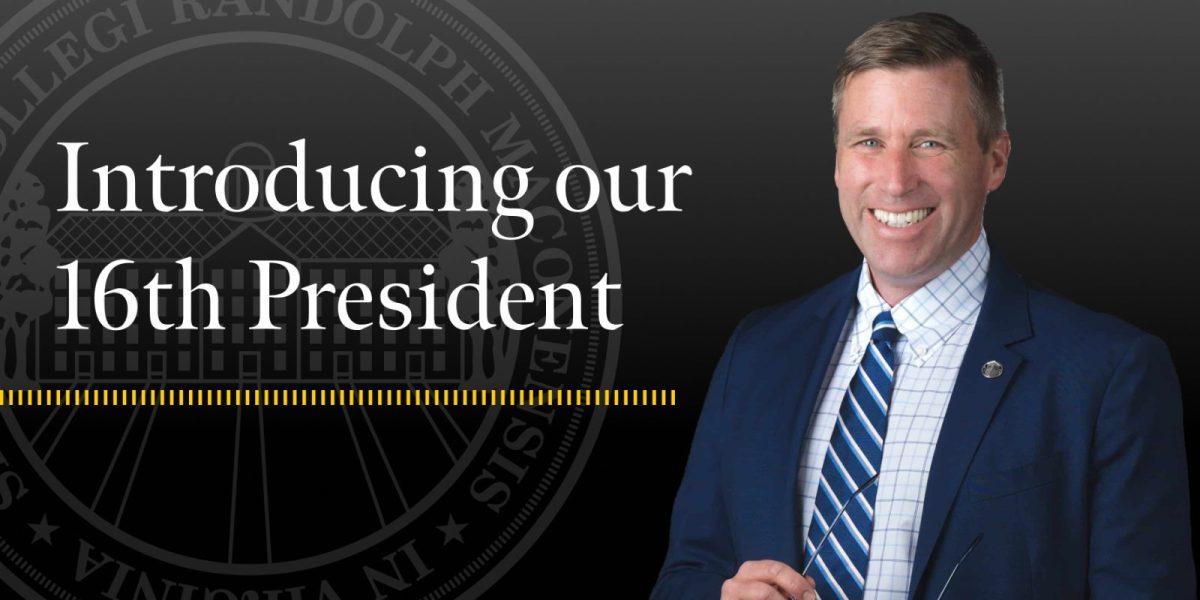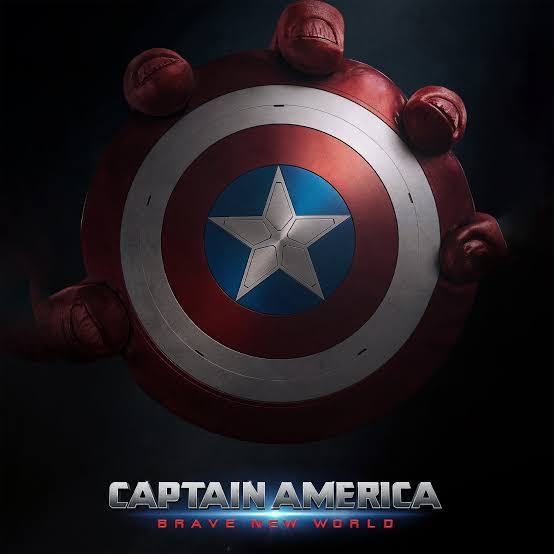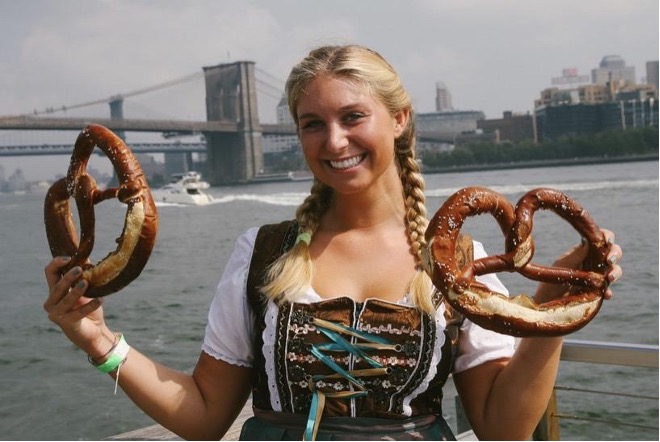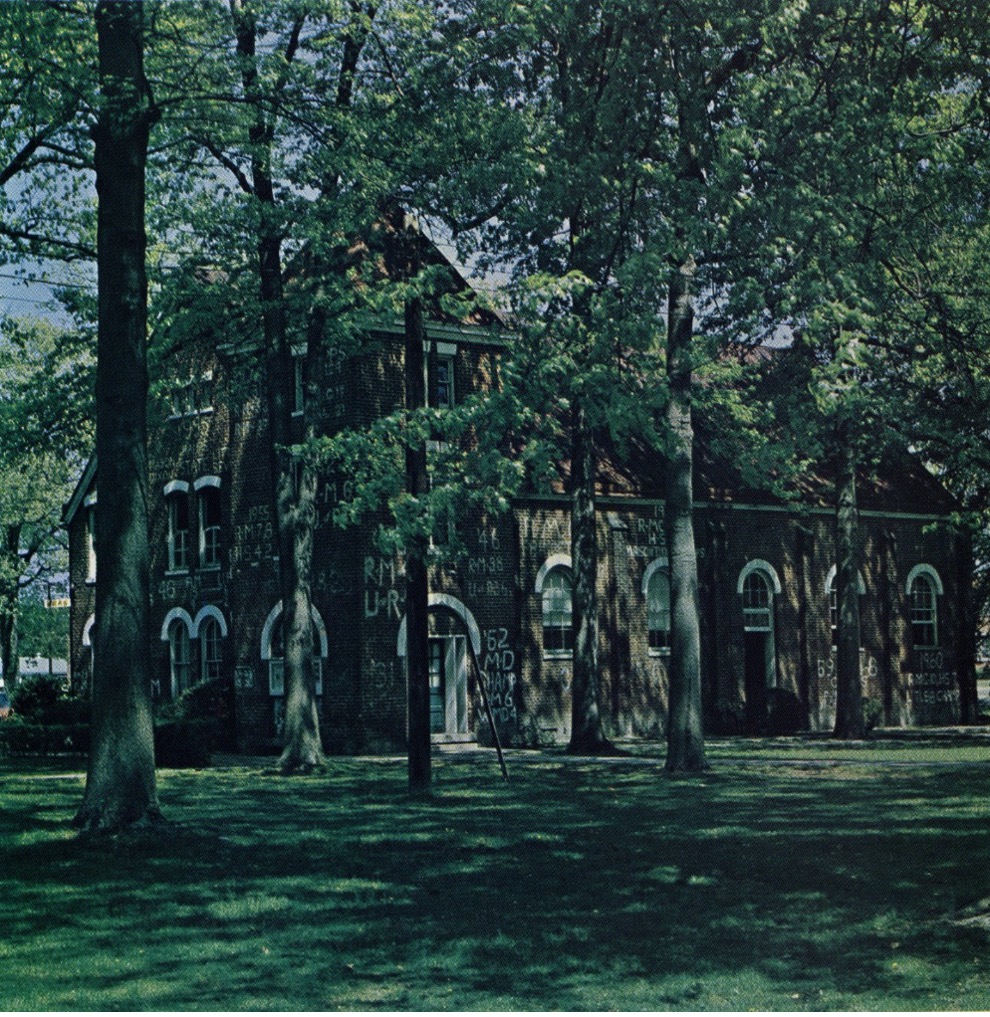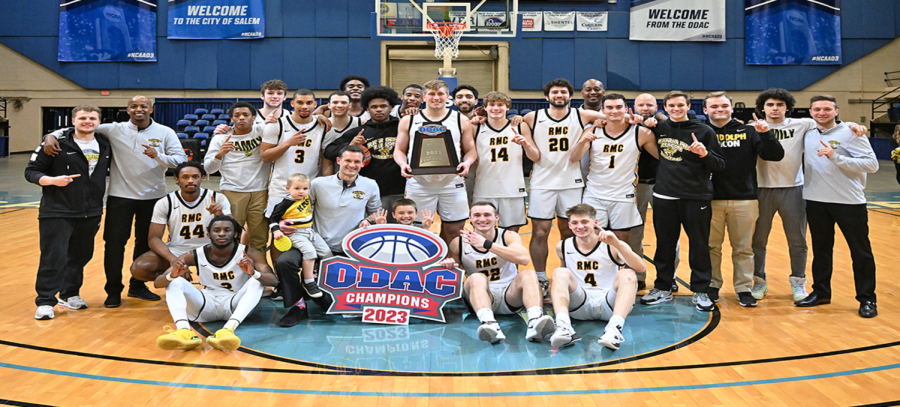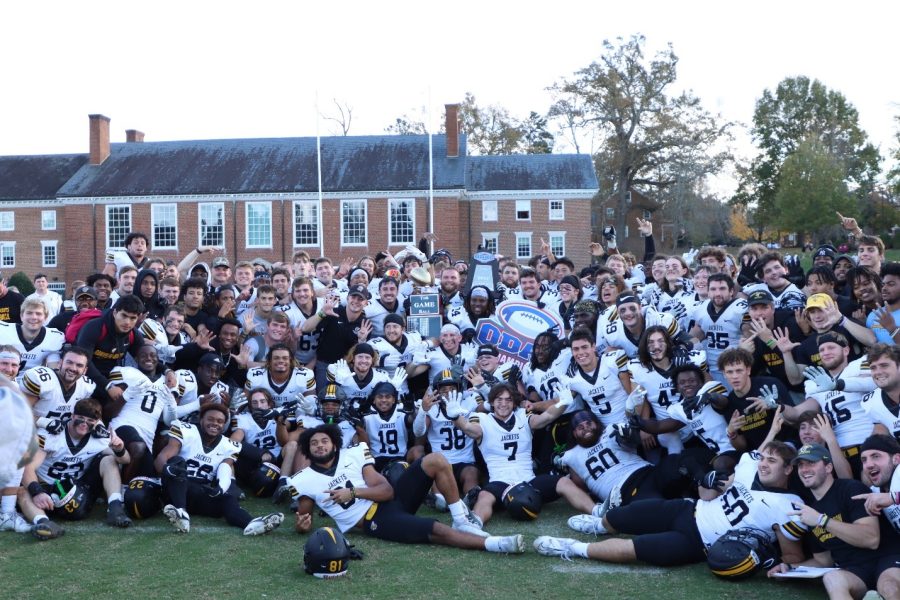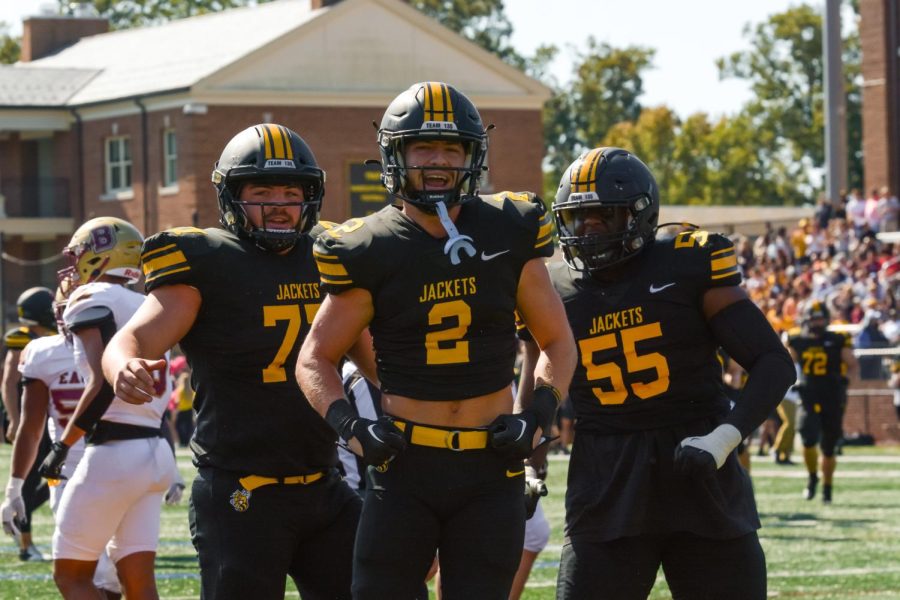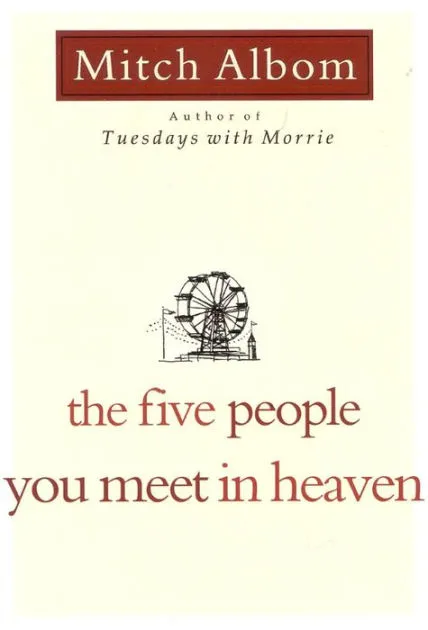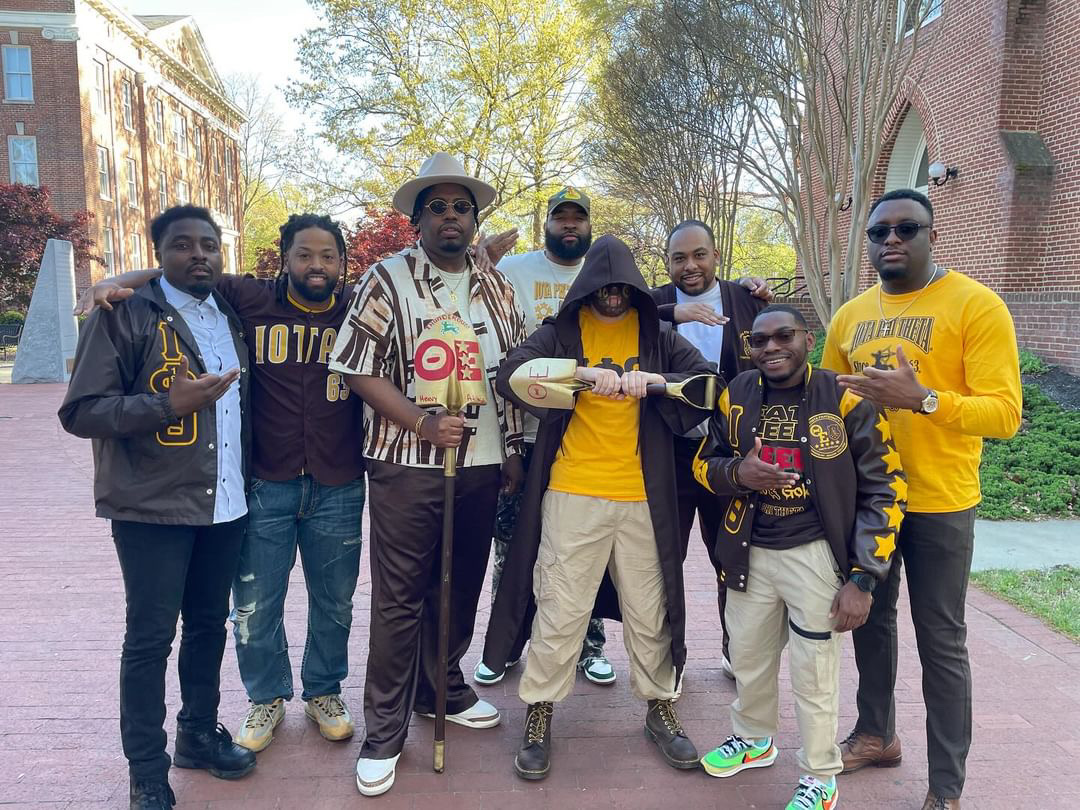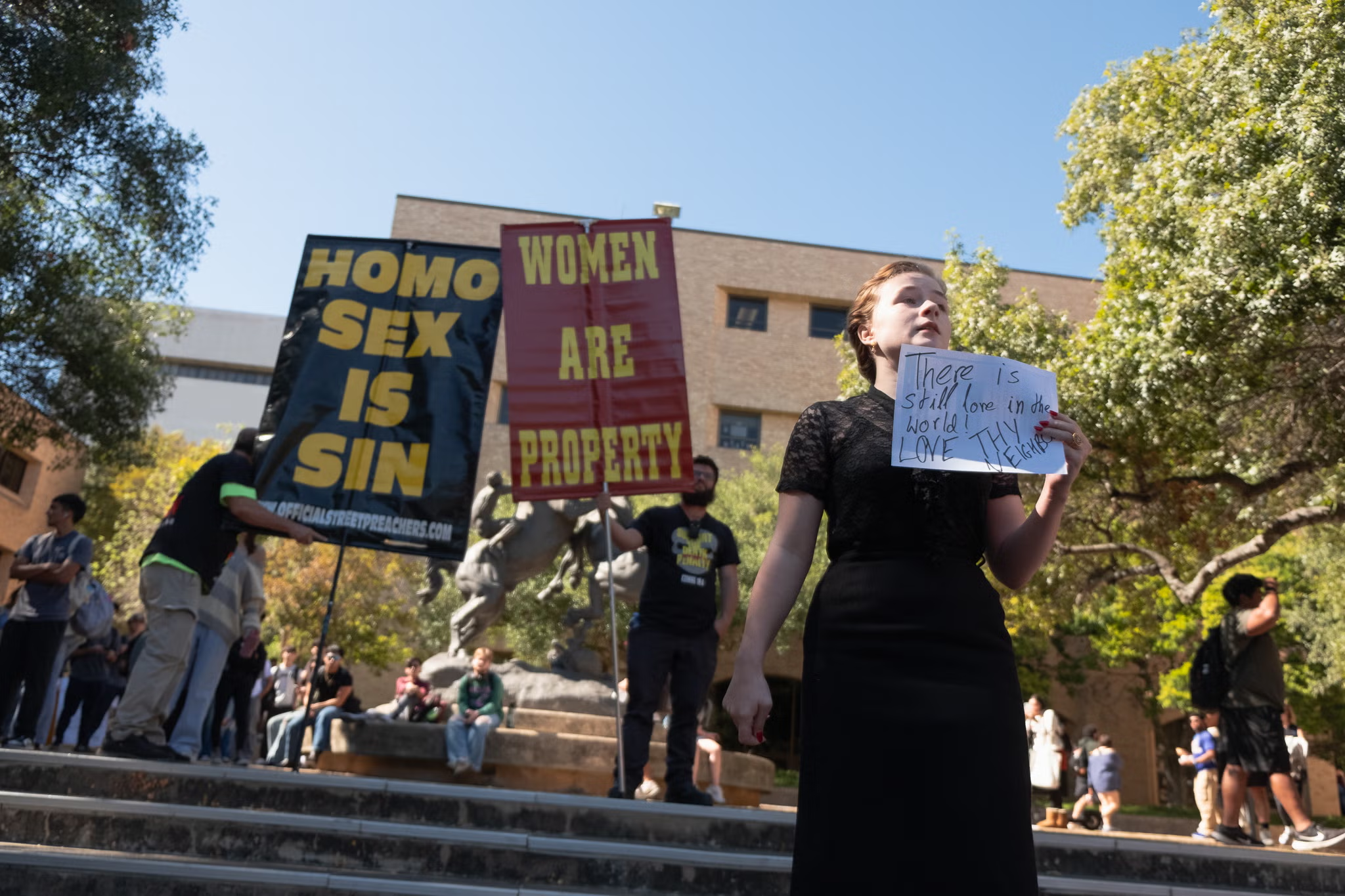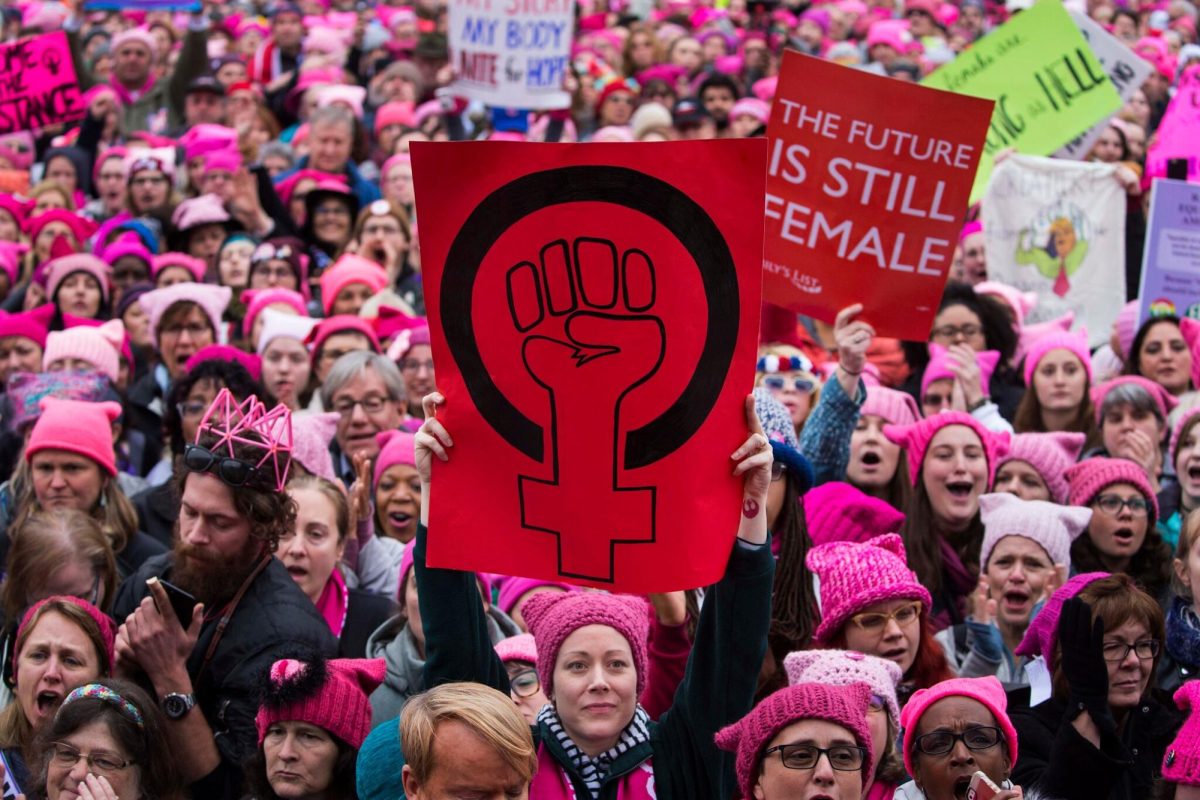This past weekend on Saturday, April 13th, the Theta Epsilon chapter of Iota Phi Theta Fraternity, Inc. held their annual New Member Campus Presentation in Brock Commons Patio! The chapter gained one new member this Spring, cyber security major Mark Brahler (’26), who will take over as the head next year.
At a Predominantly White Institution (P.W.I.) such as Randolph-Macon College (RMC), it is important for historically Black organizations, such as Iota Phi Theta Fraternity, Inc. and Alpha Kappa Alpha Sorority, Inc., to receive the same acknowledgment and advertisement that other Greek organizations do. To learn more and gain an understanding of the tradition, I sat down with the president of Iota Phi Theta Fraternity, Inc., nursing major Max Rudasill (’24).
The chapter was first chartered on RMC’s campus in 2013. Upon losing many members each year as they graduated, the chapter was briefly paused for a few years around 2019 and did not start up again until 2023 when it took in two new members, Max Rudasill and chemistry, biology, and Asian studies triple major Isaac Garrett (’23). The slogan for Iota Phi Theta is “It Takes a Man.” Rudasill explained that this is important to every member of the organization because it is not about “changing who you are as a person, just enhancing who you already are.” Holding these standards to a high degree, the chapter partners with St. Jude’s Children’s Hospital and I-Phit, a volunteer-based health initiative.
In addition to dedicating time to volunteer with these groups, the brothers of Iota Phi Theta Fraternity, Inc. dedicate time to connecting with chapters in the surrounding area, such as Virginia Commonwealth University and Virginia State University. Although they are not too far away, the level of connection that each chapter holds with those from other schools is impressive.
Being part of a Greek organization myself, I always find it fascinating to learn about the traditions of other organizations, especially those part of the Divine 9. These are the nine historically Black organizations that span across the United States, consisting of five fraternities and four sororities, with Iota Phi Theta being the youngest of the nine (1963), and Alpha Kappa Alpha being the second oldest (1908). So, Rudasill shared that each line is especially secretive before the Campus Presentation and nobody outside of the organization knows who is going to be presented. Additionally, each chapter has its “line” in which members are arranged based on their height, where the ace (also called the head) is number one and the shortest, the deuce is number two, and so on until it gets to the last person, also known as the tail. Each line gets its own name, and within each line, each person gets a significant name based on their attributes as well as their number in the line. The significance of the line is “about showing off the work put into joining the organization, learning about the organization, and having fun experiencing it as a group,” stated Rudasill. The alums from the chapter along with the Iota’s graduate chapter members also come back to RMC for the Campus Presentation, as well as various Iotas from the Beta Alpha Omega chapt
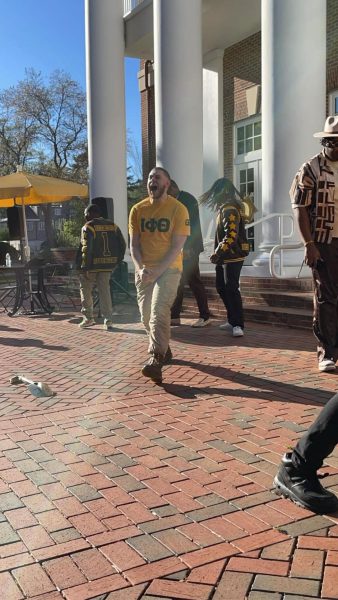
er in northern Virginia.
In addition to learning about the traditions, I wanted to learn more about the experience of a Black organization on the campus of a P.W.I. Rudasill explained some of the struggles such as, “having a smaller bubble because of the limitations already posed by joining a Black organization,” and the struggle in recruiting interest in joining because “if people do not know, they cannot experience it.” This was especially apparent when I shared that I would attend the Campus Presentation and many people around me exclaimed that they “did not know we even had this [organization].” Also, Rudasill and I discussed the limitations that certain athletic programs pose on the RMC campus because they may not allow athletes to join Greek organizations. This is especially frustrating to presidents of Black organizations like Rudasill because a large majority of the student populations of color are on athletic teams. Without allowing those athletes to find community with others they can relate to at a P.W.I., it does appear especially unfair to those students. Are they being robbed of the full college experience?
Rudasill also wanted to highlight that “although the organization is historically Black, you do not have to be to join.” This is important as anyone who is looking for a brotherhood may find it in Iota Phi Theta Fraternity, Inc.
Curiously, I asked Rudasill what he thought the school could improve on when it came to supporting its chapters within the Divine 9. He shared that “more support with events and advertising to students, as they do for many other Greek organizations,” as well as, “prioritizing the students’ interests.” He explained that many of the group’s planned events are encouraged to share with other organizations because of a lack of resources. While this can be helpful for exposure, the chapter wants to be able to hold its own events and spark interest amongst other students. He did commend Dean McGhee for his willingness to learn and support the chapter through its journey on the RMC campus.
Overall, Rudasill is extremely hopeful for the future of the Theta Epsilon chapter of Iota Phi Theta Fraternity, Inc. at Randolph-Macon College. He has and will continue to receive plentiful support from the current and alumni brothers of the chapter. With the addition of a new member this Spring, the chapter will continue running for the next school year. I am hopeful that the R-MC community will become more supportive and open to learning about the history of these Divine 9 organizations. Who knows, you may find your new home!

